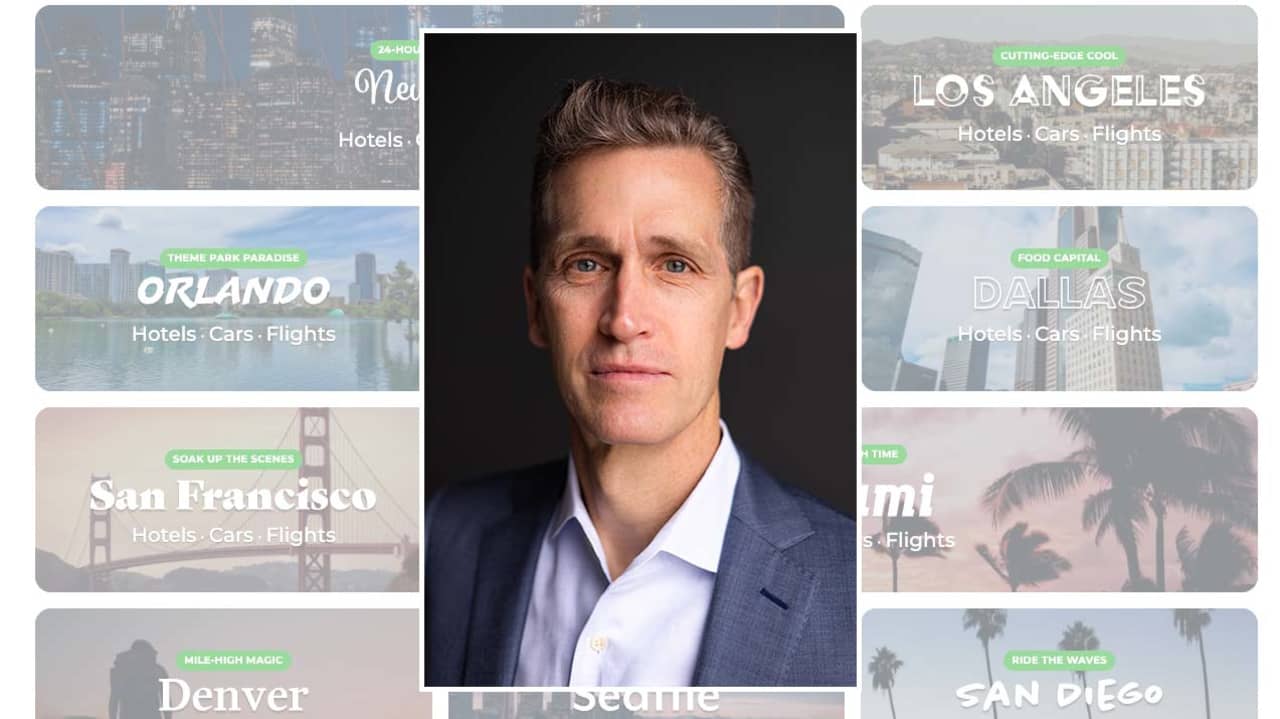Efforts to Rein In AI Tap Lesson From Social Media: Don’t Wait Until It’s Too Late
Activists and officials race to shape rules and public understanding of new artificial intelligence tools
Social media was more than a decade old before efforts to curb its ill effects began in earnest. With artificial intelligence, lawmakers, activists and executives aren’t waiting that long.
Over the past several months, award-winning scientists, White House officials and tech CEOs have called for guardrails around generative AI tools such as ChatGPT—the chatbot launched last year by Microsoft-backed startup OpenAI. Among those at the table are many veterans of the continuing battle to make social media safer.
Those advocates view the AI debate as a fresh chance to influence how companies make and market their products and to shape public expectations of the technology. They aim to move faster to shape the AI landscape and learn from errors in the fight over social media.
“We missed the window on social media,” said Jim Steyer, chief executive of Common Sense Media, a child internet-safety organisation that has for years criticised social-media platforms over issues including privacy and harmful content. “It was late—very late—and the ground rules had already been set and industry just did whatever it wanted to do.”
Activists and executives alike are pushing out a range of projects and proposals to shape understanding and regulation to address issues including AI’s potential for manipulation, misinformation and bias.
Common Sense is developing an independent AI ratings and reviews system that will assess AI products such as ChatGPT on their handling of private data, suitability for children and other factors. The nonprofit plans to launch the system this fall and spend between $5 million and $10 million a year on top of its $25 million budget to fund the project.
Other internet advocacy groups including the Mozilla Foundation are also building their own open-source AI tools and investing in startups that say they are building responsible AI systems. Some firms initially focused on social media are now trying to sell services to AI companies to help their chatbots avoid churning out misinformation and other harmful content.
Tech companies are racing to influence regulation, discussing it with global governments that are both wary of AI and eager to capitalise on its opportunities. In early May, President Biden met with the chief executives of companies including OpenAI, Microsoft and Google at the White House. OpenAI CEO Sam Altman has spent weeks meeting with lawmakers and other leaders globally to discuss AI’s risks and his company’s idea of safe regulation.
Altman and Microsoft President Brad Smith have both argued for a new regulatory agency that would license large AI systems. Tesla CEO Elon Musk, who on Wednesday announced the official launch of his new AI startup, said in May that the government should convene an independent oversight committee, potentially including industry executives, to create rules that ensure AI is developed safely.
The Federal Trade Commission also is taking a hard look at AI. It is investigating whether OpenAI has “engaged in unfair or deceptive practices” stemming from false information published by ChatGPT, according to a civil subpoena made public this past week. Altman said OpenAI is confident that it follows the law and “of course we will work with the FTC.”
Looming large over all this activity is the growing feeling among many activists and lawmakers that years of efforts to regulate or otherwise change social-media companies including Facebook parent Meta Platforms, Twitter and TikTok were unsatisfactory. Facebook was founded in 2004 and Twitter in 2006, but widespread discussion about regulation didn’t really take off until after discoveries of Russian interference and other issues in the 2016 U.S. election.
“Congress failed to meet the moment on social media,” Democratic Sen. Richard Blumenthal said during a congressional hearing on AI in May. “Now we have the obligation to do it on AI before the threats and the risks become real.”
Though social-media executives in recent years called for more regulation, no new U.S. federal laws have been set that require companies to protect users’ privacy and data or that update the nearly three-decade-old rules for how platforms police content. In part that is because of disagreements among lawmakers over whether companies should do more to moderate what is said on their platforms or whether they already have overstepped into stifling free speech.
Some of the activists who are veterans of those battles say two major lessons from this era are that the companies can’t be trusted to self-regulate and that the federal government is too gridlocked to pass meaningful legislation. “There’s a massive void,” Steyer of Common Sense Media said.
Yet he and others say they are encouraged by the willingness of AI companies to discuss major issues.
“We’re seeing some of the people from trust and safety teams from social media are now at AI companies,” said L. Gordon Crovitz, co-founder of NewsGuard, a company that tracks and rates news sites. Crovitz, former publisher of The Wall Street Journal, says these people seem much more empowered in their current roles. “The body language is ‘we’ve been freed.’”
Large language models such as GPT-4 are trained on anything that can be scraped from the internet, but the data contain large chunks of hate speech, misinformation and other harmful content. So these models are further refined after their initial training to weed out some of that bad content in a process called fine-tuning.
NewsGuard has been talking to AI companies about licensing its data—which Crovitz calls a “catalog of all the important false narratives that are out there”—for fine-tuning and to bolster AI models’ guardrails against producing just those types of misinformation and false narratives.
Ravi Iyer, a former product manager for Meta, is now at the University of Southern California’s Marshall School of Business and developing a poll that tracks how people experience AI systems. He hopes the poll will influence how AI companies design and deploy their products.
“We need to know that’s a choice platforms can make and reward them for not making the wrong choices,” Iyer said.
The Mozilla Foundation, a nonprofit that builds the Firefox internet browser, said it is building open-sourced models as alternatives to large private AI models. “We need to build alternatives and not just advocate for them,” Mark Surman, Mozilla’s president, said.
Steyer described the AI ratings system being built at Common Sense as the most ambitious in the nonprofit’s history. Tracy Pizzo Frey, a consultant who previously worked for Google and is helping craft the system, said there is no set way to evaluate the safety of AI tools.
So far, Common Sense is looking at seven factors, including how transparent companies are about what their systems can do and where they still have shortcomings. The nonprofit may factor in how much information companies provide about their training data, which companies including OpenAI view as competitive secrets.
Frey said Common Sense won’t ask for proprietary data but needs information that helps parents and educators make informed decisions about the use of AI. “There are no rules around what transparency looks like,” Frey said.
 Copyright 2020, Dow Jones & Company, Inc. All Rights Reserved Worldwide. LEARN MORE
Copyright 2020, Dow Jones & Company, Inc. All Rights Reserved Worldwide. LEARN MORE
This stylish family home combines a classic palette and finishes with a flexible floorplan
Just 55 minutes from Sydney, make this your creative getaway located in the majestic Hawkesbury region.
Continued stagflation and cost of living pressures are causing couples to think twice about starting a family, new data has revealed, with long term impacts expected
Australia is in the midst of a ‘baby recession’ with preliminary estimates showing the number of births in 2023 fell by more than four percent to the lowest level since 2006, according to KPMG. The consultancy firm says this reflects the impact of cost-of-living pressures on the feasibility of younger Australians starting a family.
KPMG estimates that 289,100 babies were born in 2023. This compares to 300,684 babies in 2022 and 309,996 in 2021, according to the Australian Bureau of Statistics (ABS). KPMG urban economist Terry Rawnsley said weak economic growth often leads to a reduced number of births. In 2023, ABS data shows gross domestic product (GDP) fell to 1.5 percent. Despite the population growing by 2.5 percent in 2023, GDP on a per capita basis went into negative territory, down one percent over the 12 months.
“Birth rates provide insight into long-term population growth as well as the current confidence of Australian families,” said Mr Rawnsley. “We haven’t seen such a sharp drop in births in Australia since the period of economic stagflation in the 1970s, which coincided with the initial widespread adoption of the contraceptive pill.”
Mr Rawnsley said many Australian couples delayed starting a family while the pandemic played out in 2020. The number of births fell from 305,832 in 2019 to 294,369 in 2020. Then in 2021, strong employment and vast amounts of stimulus money, along with high household savings due to lockdowns, gave couples better financial means to have a baby. This led to a rebound in births.
However, the re-opening of the global economy in 2022 led to soaring inflation. By the start of 2023, the Australian consumer price index (CPI) had risen to its highest level since 1990 at 7.8 percent per annum. By that stage, the Reserve Bank had already commenced an aggressive rate-hiking strategy to fight inflation and had raised the cash rate every month between May and December 2022.
Five more rate hikes during 2023 put further pressure on couples with mortgages and put the brakes on family formation. “This combination of the pandemic and rapid economic changes explains the spike and subsequent sharp decline in birth rates we have observed over the past four years,” Mr Rawnsley said.
The impact of high costs of living on couples’ decision to have a baby is highlighted in births data for the capital cities. KPMG estimates there were 60,860 births in Sydney in 2023, down 8.6 percent from 2019. There were 56,270 births in Melbourne, down 7.3 percent. In Perth, there were 25,020 births, down 6 percent, while in Brisbane there were 30,250 births, down 4.3 percent. Canberra was the only capital city where there was no fall in the number of births in 2023 compared to 2019.
“CPI growth in Canberra has been slightly subdued compared to that in other major cities, and the economic outlook has remained strong,” Mr Rawnsley said. “This means families have not been hurting as much as those in other capital cities, and in turn, we’ve seen a stabilisation of births in the ACT.”
This stylish family home combines a classic palette and finishes with a flexible floorplan
Just 55 minutes from Sydney, make this your creative getaway located in the majestic Hawkesbury region.






















